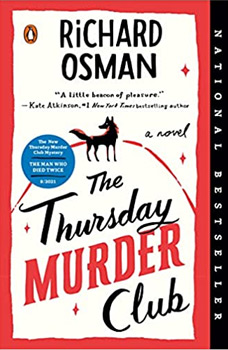Summary | Excerpt | Reading Guide | Reviews | Beyond the Book | Readalikes | Genres & Themes | Author Bio

1.
Joyce
Well, let's start with Elizabeth, shall we? And see where that gets us?
I knew who she was, of course; everybody here knows Elizabeth. She has one of the three-bedroom flats in Larkin Court. It's the one on the corner, with the decking? Also, I was once on a quiz team with Stephen, who, for a number of reasons, is Elizabeth's third husband.
I was at lunch, this is two or three months ago, and it must have been a Monday, because we were having shepherd's pie. Elizabeth said she could see that I was eating, but she wanted to ask me a question about knife wounds, if it wasn't inconvenient?
I said, "Not at all, of course, please," or words to that effect. I won't always remember everything exactly, I might as well tell you that now. So she opened a manila folder, and I saw some typed sheets and the edges of what looked like old photographs. Then she was straight into it.
Elizabeth asked me to imagine that a girl had been stabbed with a knife. I asked what sort of knife she had been stabbed with, and Elizabeth said probably just a normal kitchen knife. John Lewis or somesuch. She didn't say that, but that was what I pictured. Then she asked me to imagine this girl had been stabbed three or four times, just under the breastbone. In and out, in and out, very nasty, but without severing an artery. She was fairly quiet about the whole thing, because people were eating, and she does have some boundaries.
So there I was, imagining stab wounds, and Elizabeth asked me how long it would take the girl to bleed to death.
By the way, I realize I should have mentioned that I was a nurse for many years; otherwise none of this will make sense to you. Elizabeth would have known that from somewhere, because Elizabeth knows everything. Anyway, that's why she was asking me. You must have wondered what I was on about. I will get the hang of writing this, I promise.
I remember dabbing at my mouth before I answered, like you see on television sometimes. It makes you look clever, try it. I asked what the girl had weighed.
Elizabeth found the information in her folder, followed her finger, and read out that the girl had been forty-six kilos. Which threw us both, because neither of us was sure what forty-six kilos was in real money. In my head I was thinking it must be about twenty-three stone? Two to one was my thinking. Even as I thought that, though, I suspected I was getting mixed up with inches and centimeters.
Elizabeth let me know the girl definitely wasn't twenty-three stone, as she had a picture of her corpse in the folder. She tapped the folder at me, then turned her attention back to the room and said, "Will somebody ask Bernard what forty-six kilos is?"
Bernard always sits by himself, at one of the smaller tables nearest the patio. Table 8. You don't need to know that, but I will tell you a bit about Bernard.
Bernard Cottle was very kind to me when I first arrived at Coopers Chase. He bought me a clematis cutting and explained the recycling timetable. They have four different colored bins here. Four! Thanks to Bernard, I know that green is for glass and blue is cardboard and paper. As for red and black, though, your guess is still as good as mine. I've seen all sorts as I've wandered about. Someone once put a fax machine in one.
Bernard had been a professor, something in science, and had worked all around the world, including going to Dubai before anyone had heard of it. True to form, he was wearing a suit and tie to lunch, but was nevertheless reading the Daily Express. Mary from Ruskin Court was at the next table; she got his attention and asked how much forty-six kilos was when it was at home.
Bernard nodded and called over to Elizabeth, "seven stone three and a bit."
And that's Bernard for you.
Elizabeth thanked him and said that sounded about right, and Bernard returned to his crossword. I looked up centimeters and inches afterward, and at least I was right about that.
Excerpted from The Thursday Murder Club by Richard Osman. Copyright © 2020 by Richard Osman. All rights reserved. No part of this excerpt may be reproduced or reprinted without permission in writing from the publisher.
Never doubt that a small group of thoughtful, committed people can change the world...
Click Here to find out who said this, as well as discovering other famous literary quotes!
Your guide toexceptional books
BookBrowse seeks out and recommends the best in contemporary fiction and nonfiction—books that not only engage and entertain but also deepen our understanding of ourselves and the world around us.